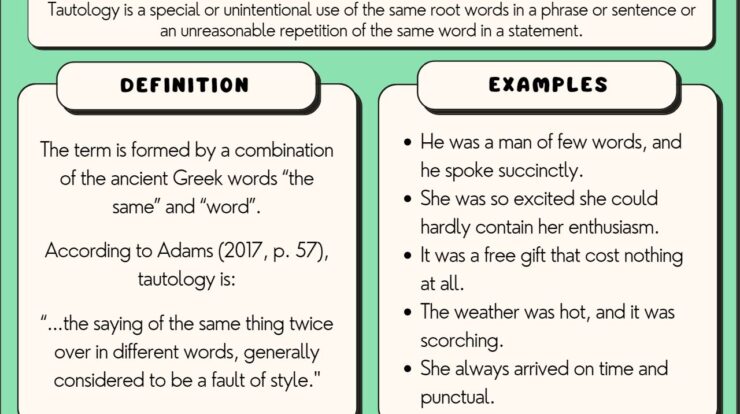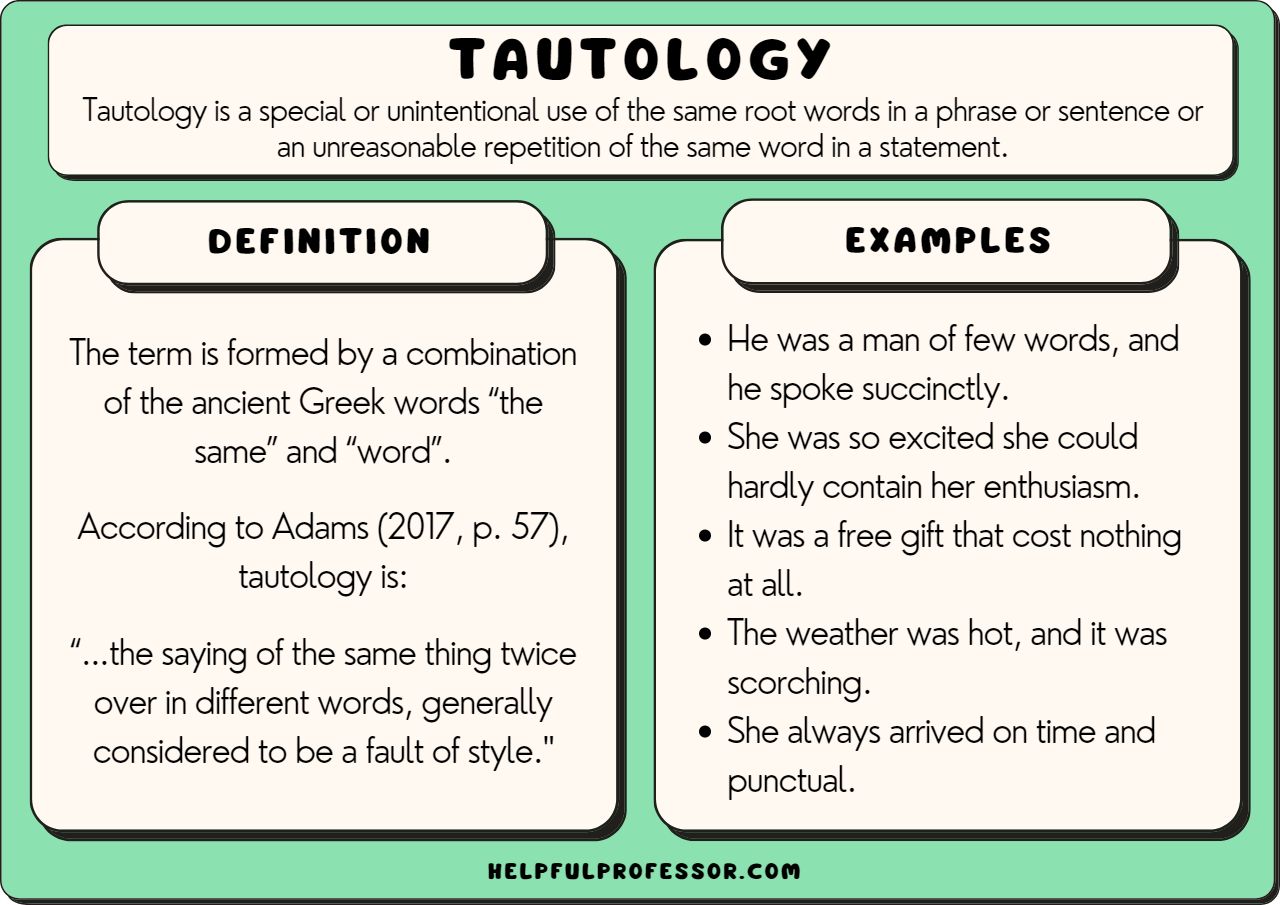
Tautological definitions, a cornerstone of clear communication, have captivated the attention of scholars and practitioners alike. Their unique ability to elucidate concepts by restating them in equivalent terms has made them an indispensable tool in various fields.
As we delve into the intricacies of tautological definitions, we will explore their types, applications in logic and language, and the advantages and disadvantages associated with their use. Additionally, we will uncover alternative approaches to defining concepts without resorting to tautologies.
Tautological Definition

A tautological definition is a definition that simply restates the term being defined. In other words, it is a definition that is true by virtue of the meaning of the words used.
For example, the definition of “bachelor” as “an unmarried man” is a tautological definition. This is because the term “bachelor” already implies that the person is unmarried. Therefore, the definition simply restates what is already known.
Types of Tautological Definitions
There are two main types of tautological definitions:
- Verbal definitions: These definitions simply restate the term being defined using different words.
- Real definitions: These definitions provide more information about the term being defined, but they still do not provide a complete definition.
Tautological Definitions in Logic
Tautological definitions are often used in logic. In logic, a tautology is a statement that is true in all possible cases. For example, the statement “A or not A” is a tautology because it is true no matter what the value of A is.
Tautologies are used in logic to create arguments that are valid. A valid argument is an argument in which the conclusion follows logically from the premises. If the premises of an argument are tautologies, then the conclusion must also be a tautology.
Tautological Definitions in Language
Tautological definitions are also used in language. For example, the definition of “red” as “the color of blood” is a tautological definition. This is because the term “red” already implies that the color is the same as the color of blood.
Tautological definitions can be useful in language because they can help to clarify the meaning of a term. However, they can also be confusing if they are not used correctly.
Advantages and Disadvantages of Tautological Definitions
There are several advantages to using tautological definitions. First, they are easy to understand. Second, they are precise. Third, they are unambiguous.
However, there are also several disadvantages to using tautological definitions. First, they can be redundant. Second, they can be circular. Third, they can be misleading.
Alternatives to Tautological Definitions
There are several alternatives to using tautological definitions. One alternative is to use ostensive definitions. Ostensive definitions define a term by pointing to an example of the term. For example, the definition of “dog” as “a four-legged animal with a tail” is an ostensive definition.
Another alternative to using tautological definitions is to use operational definitions. Operational definitions define a term by specifying the operations that are used to measure the term. For example, the definition of “intelligence” as “the ability to solve problems” is an operational definition.
Last Word

Tautological definitions have proven their worth as a valuable tool for achieving clarity in communication. Their simplicity and effectiveness make them a preferred choice in various disciplines. However, it is essential to be aware of their limitations and to consider alternative approaches when appropriate.
By embracing a nuanced understanding of tautological definitions, we can harness their power to enhance our communication and promote a deeper understanding of the world around us.
FAQ Section: Tautological Definition
What is a tautological definition?
A tautological definition is a definition that restates the concept being defined using equivalent terms.
What are the advantages of using tautological definitions?
Tautological definitions provide clarity, precision, and can aid in logical reasoning.
What are the disadvantages of using tautological definitions?
Tautological definitions can be redundant, uninformative, and potentially lead to circular reasoning.




